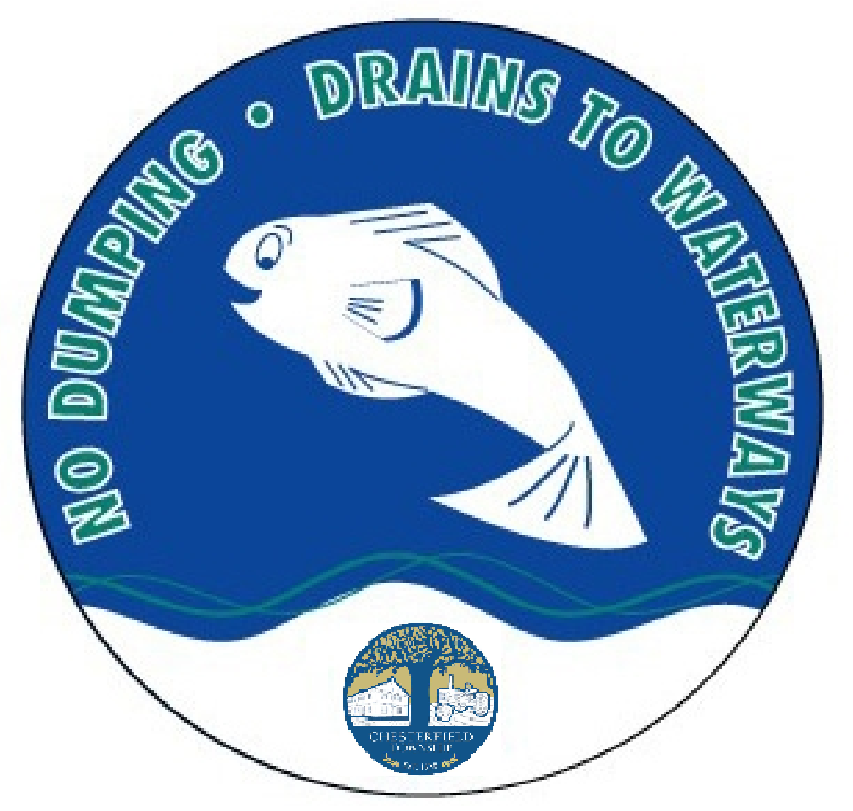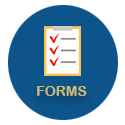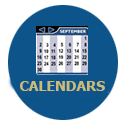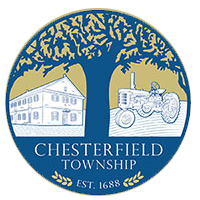Stormwater Management "Tier B" Documents
Stormwater Management "Tier A" Documents
- Tier A General Permit
- Tier A Assignment Letter
- Stormwater Prevention Report (Post Pending)
- MS-4 Outfall Mapping
- Stormwater Pollution Prevention Plan
A Guide to Healthy Habits for Cleaner Water
Pollution on the ground, in streets and parking lots, fertilizers, pesticides, and herbicides on lawns are carried by rainwater into storm drains. From there they enter our streams, lakes, groundwater and eventually our bays and oceans. These pollutants not only foul up our recreational waters, but also find their way into our drinking water supplies.
Polluted runoff is one of the largest contributors to the degradation of our streams, etc., and remains one of the greatest threats to clean and plentiful water, and that is why we are asking you to help do something about it. Fertilizer, oil, pesticides, herbicides, detergents, animal waster, leaves, and grass clippings all contribute to polluted waterways, and by sharing a portion of the responsibility and making small meaningful changes in our daily lives, we can help keep these pollutants out of stormwater runoff.
As part of the new Federal Phase II, stormwater regulations and New Jersey's initiative to help clean up its water, Chesterfield Township and other public agencies have adopted regulations to control pollution in stormwater. Part of the regulations is to adopt ordinances to prohibit various activities that can add to stormwater pollution.
As residents of New Jersey, it is important to remember these easy things you can do to help contribute to restoring the health of our streams.
Limit Your Use of Fertilizers & Pesticides
- Do a soil test to see if you need a fertilizer
- Do not apply a fertilizer if heavy rain is predicted
- Look into alternatives for pesticides
- Maintain a small lawn and keep the rest of your property or yard in a natural state with trees and other vegetation that require little or no fertilizer
- If you use fertilizer and pesticides, follow the instructions on the label on how to correctly apply it
Properly Use & Dispose of Hazardous Products
- Hazardous products include household and commercial cleaning products, lawn and garden care products, motor oil, antifreeze and paints
- Do not pour any hazardous products down a storm drain. Storms drains are connected to local water bodies, and the water is not treated.
- If you have hazardous products in your home or workplace, make sure you store or dispose of them properly. Read the label for guidance.
- Use natural or less toxic alternatives when possible
- Recycle motor oil
- If you spill, leak and/or discharge any hazardous waste, use dry clean-up methods such as cat litter or products specifically designed for this purpose
Clean up After Your Pet
- Chesterfield Township has an ordinance regarding pet waste. An example requires pet owners or their keepers to pick up and properly dispose of pet waste dropped on public or private property.
- Make sure you know the ordinance requirements and comply with them
- Use newspaper, bags or pooper-scoopers to pick up waste
- Dispose of the wrapped pet waste in the trash or unwrapped in a toilet
- Never discard pet waste in a storm drain
Do Not Feed Wildlife
- Do not feed wildlife, such as ducks or geese, anywhere within the Township.
Do Not Litter
- Place litter in closed trash receptacles
- Place recyclables in a closed, lidded container. Pick up cans, bottles, etc. that may spill out of the recycle bin
- Participate in community group cleanups
Dispose of Yard Waste Properly
- Keep leaves and grass out of the street. When consolidating your leaves and yard waste for your eventual transporting to the Municipal Recycling Center, never place the materials in the street closer than 10 feet from a drainage inlet and do not leave it in the street any longer than required to collect it and transport it the same day
- Use leaves and grass clippings as a resource for compost
- Use a mulching mower that recycles grass clippings into the lawn
Keep Pollution out of Storm Drains

- Municipalities and other public agencies are required to mark certain storm drain inlets with messages reminding people that storm drains are connected to local water bodies.
Chesterfield Township uses various logos for our storm drain inlets, but they all give the same advice, do not dump because it will impact our waterways. - Do not let sewage or other waste flow into a stormwater system.
Municipal Stormwater Regulations Program
The U.S. Environmental Protection Agency published The Phase II Stormwater Rules in December 1999, and NJ Department of Environmental Protection (NJDEP) has adopted the rules and developed The Municipal Stormwater Regulations Program to implement these rules. The NJDEP has issued the Township a permit, and we have already implemented a Stormwater Pollution Prevention Program. The program includes modifying existing Stormwater inlets to prevent floatables from entering the waterways, outfall mapping, local public education, illicit connection removals and improper disposal of waste, to name a few. Chesterfield Township has also recently adopted several ordinances to comply with the new stormwater regulations.
Further Information
- Clean Water New Jersey - It's up to you, New Jersey!
- Barnegat Bay Partnership - Public Participation, education, and outreach are central to the Barnegat Bay Partnership's mission to protect and restore the Barnegat Bay estuary and its watershed.
- NJBeaches.org - An interactive website and map that will show real-time status of monitored beaches.
- Delaware Riverkeeper Network - The Delaware Riverkeeper Network champions the rights of our communities to a Delaware River and streams that are free-flowing, clean, healthy, and abundant with a diversity of life.
- Crosswicks - Doctors Creek Watershed Association - Public information base for activities, events and plans occurring within the Watershed.
| Solutions to Stormwater Pollution | What is Stormwater Pollution and what can I do? |





